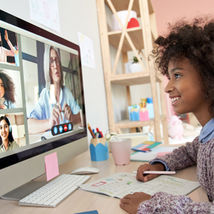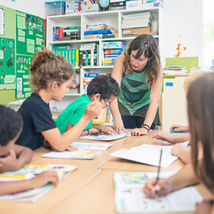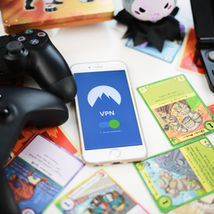Help Your Kids Keep Their College Admissions Offer; Start Early & Start with Digital Citizenship
Updated: Mar 30, 2021

The internet is very much part of everyday life, especially for kids. With remote learning, social media, and virtual socialization, it’s impossible for them to imagine life without this technology. And they don’t even have to, since the internet is here to stay. However, several studies show that there will always be risks involved when kids are constantly exposed to the internet. Screen and internet time have been linked to childhood obesity, sleep problems, and decreased psychological well-being. What’s more alarming is that cyber bullying has nearly doubled in the last decade. For a generation that’s set to be online, in one way or another, for the rest of their education and even career, these figures are concerning. Although, this doesn’t mean that the internet is all bad. It’s a useful tool that helps kids learn and connect more effectively. And a good digital citizenship will not only help with your child’s online behavior and awareness it could even help with their future college admission offer.
What is Digital Citizenship?
We define digital citizenship as “the safe and responsible use of digital technologies.” This refers to the positive, critical, and competent engagement in the digital environment. Furthermore, digital citizenship is a practice wherein online users remain respectful of human rights and dignity throughout their use of the technology. As significant portions of our educational and professional lives move to the digital space, a solid foundation in digital citizenship early on can only results in benefits for your child as they consider their career. Top careers in business administration, whether it be healthcare, financial corporations, or non-profit organizations, are all heavily digitalized. Students pursuing these jobs will require not only suitable digital knowledge, but also good digital etiquette in order to excel. This is especially true now that remote work has become the norm. And with study after study pointing to remote work being here to stay, even after the pandemic, digital citizenship will continue to play a key role in your child’s life in the decades to come. In fact, good digital citizenship may even increase your kids’ chance of getting that coveted college admission offer. This is because admission officers now factor in an applicant’s social media and online footprint. While good GPA, SAT, and ACT scores are still needed to get into higher education, online behavior is now considered a key factor in today’s admissions process.
Turn Digital Citizenship Into Action
Have Open Discussions Digital citizenship isn’t something that can be accomplished after a single conversation. It has to be a continuous process where you openly discuss proper internet use as a family. School psychologist, Francyne Zeltser, Ph.D. suggests using news about cyber bullying and privacy issues as icebreakers for these dialogues. Ask your kids how they might respond to these incidents and have constructive exchanges. As kids grow, their views could change, so it’s important to repeat the process regularly. Monitor Your Child We don’t mean that you go through your child’s text messages without their permission— that’s a breach of trust and privacy. Instead, Dr. Zeltser recommends monitoring your child’s mood shifts and online behavior changes. Experts say that sudden upticks in either could be red flags when something isn’t going well online. When this happens, reach out to your child and let them know that they can always come to you with anything. Prepare a Process There are times when kids find it difficult to tell you if and when they’re being cyber bullied, and that makes it more challenging to help them. This is why you should have processes in place should incidents like these happen, ones that kids can do on their own. One of the key things to teach your child is to not respond to the bully. When this happens, ask your kid to take time off the internet, ignore the harassment, and block the bully. Conversely, remind your child to always treat others with respect online, as they would in real life. Digital citizenship is a two-way street; kids need to be protected, as well as ensure others’ well being online. This will make them more well-rounded individuals, ready for the future in the digital space.
About the Author
Cara Jones is a digital literacy and tech columnist. Her passion is helping people of every age be more prepared for their future. She's also a mother of two tech-savvy boys and one nap-loving pooch.





















